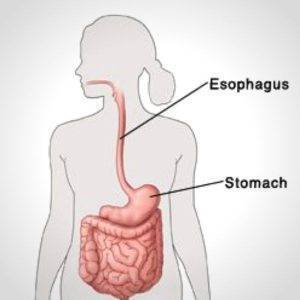“Esophageal cancer: Taking away your breath, one tumor at a time.”
What is Esophageal Cancer
Esophagus, also known as the food pipe, is a muscular tube that transports food from the throat to the stomach. Any severe infection spread to the food pipe can form Esophageal Cancer. The exact cause of this cancer is not known, but certain risk factors have been identified like smoking, drinking alcohol, being overweight, and having certain medical conditions such as Barrett’s esophagus.
The exact cause of this cancer is not known, but certain risk factors have been identified like smoking, drinking alcohol, being overweight, and having certain medical conditions such as Barrett’s esophagus.
Warning Signs
The most common symptom of esophageal cancer is difficulty swallowing, also known as dysphagia. This can range from feeling like food is stuck in your throat to having pain when you swallow.
Other symptoms may include
- pain in the chest or back
- weight loss
- hoarseness
- coughing up blood.
These symptoms can also be caused by other conditions, such as acid reflux or an infection. If you experience any of these symptoms, it is important to see your doctor for a proper diagnosis.
How to Recognize the Symptoms
Esophageal cancer is often diagnosed through a combination of tests including
 If you are diagnosed with esophageal cancer, your doctor will discuss the best course of action for your situation.
If you are diagnosed with esophageal cancer, your doctor will discuss the best course of action for your situation.
Different Types of Esophageal Cancer and Their Prognosis
This type of cancer is difficult to diagnose and treat and can have a wide range of prognoses depending on the type of cancer and how far it has spread.
There are two main types of Esophageal cancer:
- Squamous cell carcinoma
- Adenocarcinoma.
Squamous cell carcinoma is the most common type of esophageal cancer, and it usually starts in the cells that line the inside of the esophagus.
Adenocarcinoma is less common, but it is more likely to spread to other parts of the body.
The prognosis for esophageal cancer depends on the type of cancer, the stage of cancer, and the patient’s overall health. Generally, the earlier the cancer is detected, the better the prognosis.
For squamous cell carcinoma, the five-year survival rate is about 50 percent.
For adenocarcinoma, the five-year survival rate is about 30 percent.
These are just averages, and each individual’s prognosis will depend on their specific situation.
Complications of Esophageal Cancer and How It Can Kill You
While it is not as common as other types of cancer, it is still a serious health concern that can be fatal if not treated promptly.
If left untreated, this cancer can spread to other parts of the body, including the lungs, liver, and lymph nodes. This can lead to further complications, such as difficulty breathing, pain, and even death.
Early detection and treatment can help improve the chances of survival and reduce the risk of complications. With the right care and support, it is possible to manage the condition and live a full and healthy life.
Causes and Risk Factors
The exact cause of esophageal cancer is unknown, certain risk factors can increase a person’s chances of developing the disease.
One of the most common risk factors for esophageal cancer is smoking. Smoking cigarettes, cigars, and pipes can all increase the risk of developing the disease.
Exposure to secondhand smoke can also increase the risk. Quitting smoking is one of the best ways to reduce your risk of this cancer.
Another risk factor for esophageal cancer is excessive alcohol consumption. Drinking too much alcohol can damage the cells in the esophagus, which can increase the risk of developing the disease. It’s important to limit your alcohol consumption to reduce your risk.
Being overweight or obese is also a risk factor for esophageal cancer. Excess body fat can put extra pressure on the esophagus, which can damage the cells and increase the risk of developing the disease. Eating a healthy diet and exercising regularly can help you maintain a healthy weight and reduce your risk.
Certain medical conditions can also increase the risk of this cancer. Gastroesophageal reflux disease (GERD) is a condition in which stomach acid backs up into the esophagus, which can damage the cells and increase the risk of developing the disease.
People with Barrett’s esophagus, a condition in which the cells in the esophagus become abnormal, are at an increased risk of developing esophageal cancer.
Various types of yogas and asanas also can help to get rid of GERD
Certain genetic conditions can increase the risk of esophageal cancer. People with a family history of the disease are more likely to develop it themselves.
To add to it, people with certain inherited genetic conditions, such as Li-Fraumeni syndrome, are at an increased risk of developing the disease.
Treatment Options and Their Side Effects
Surgery is one of the most common treatments for esophageal cancer. Depending on the stage of cancer, surgery may involve removing part or all of the esophagus.
This can be a difficult and invasive procedure, and it can have several side effects. These can include pain, nausea, vomiting, and difficulty swallowing. There is also a risk of infection and bleeding.
Radiation therapy is another option for treating esophageal cancer. This involves using high-energy beams to target and destroys cancer cells. While radiation therapy can be effective, it can also cause side effects such as fatigue, skin irritation, and difficulty swallowing.
Chemotherapy involves drugs to kill cancer cells. Common side effects of chemotherapy include nausea, vomiting, hair loss, and fatigue.
Targeted therapy is a newer treatment option for esophageal cancer. This involves using drugs to target specific molecules in cancer cells. Common side effects of targeted therapy include nausea, vomiting, and fatigue.
With the right treatment plan, you can manage your esophageal cancer and improve your quality of life.






